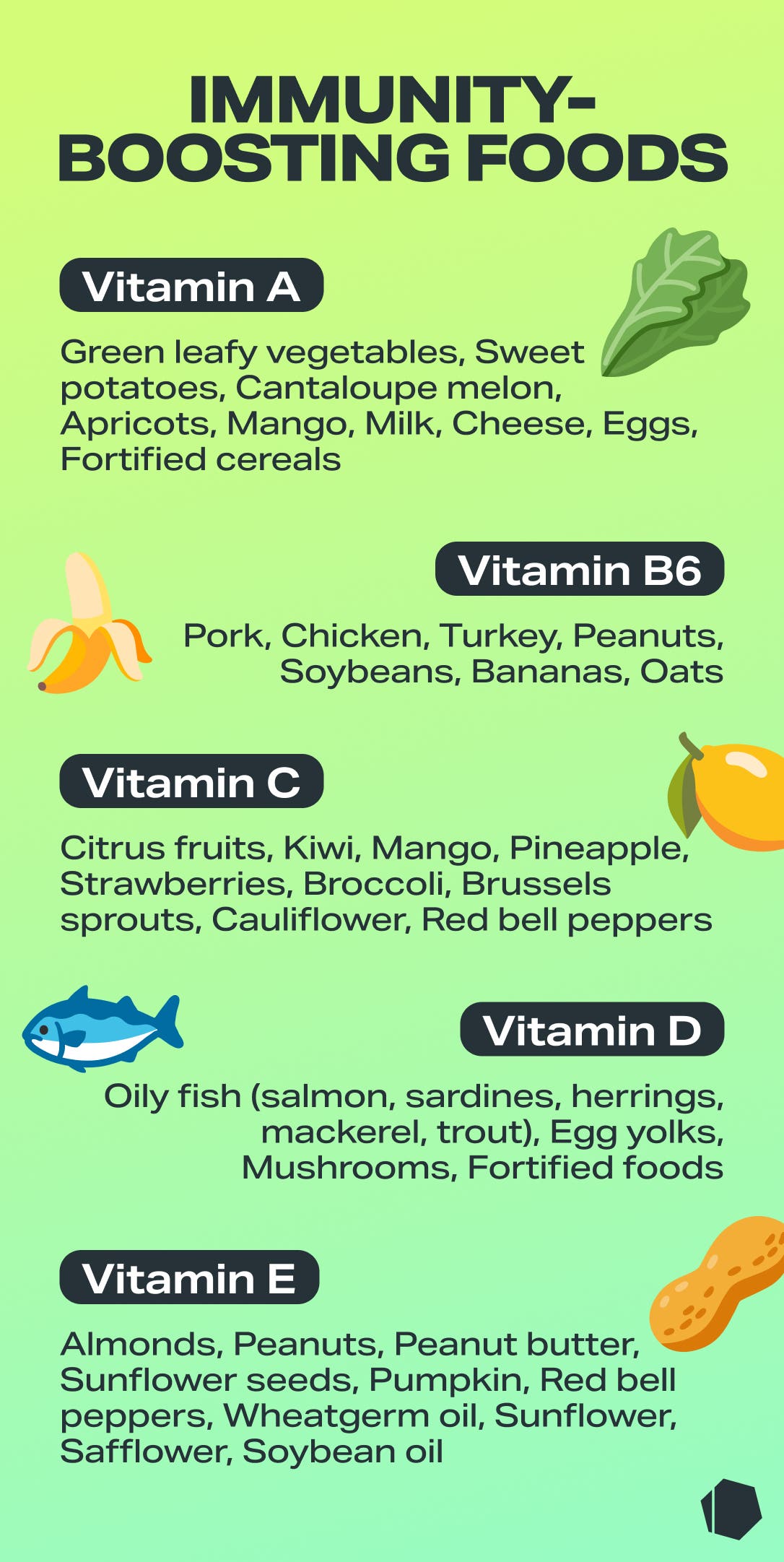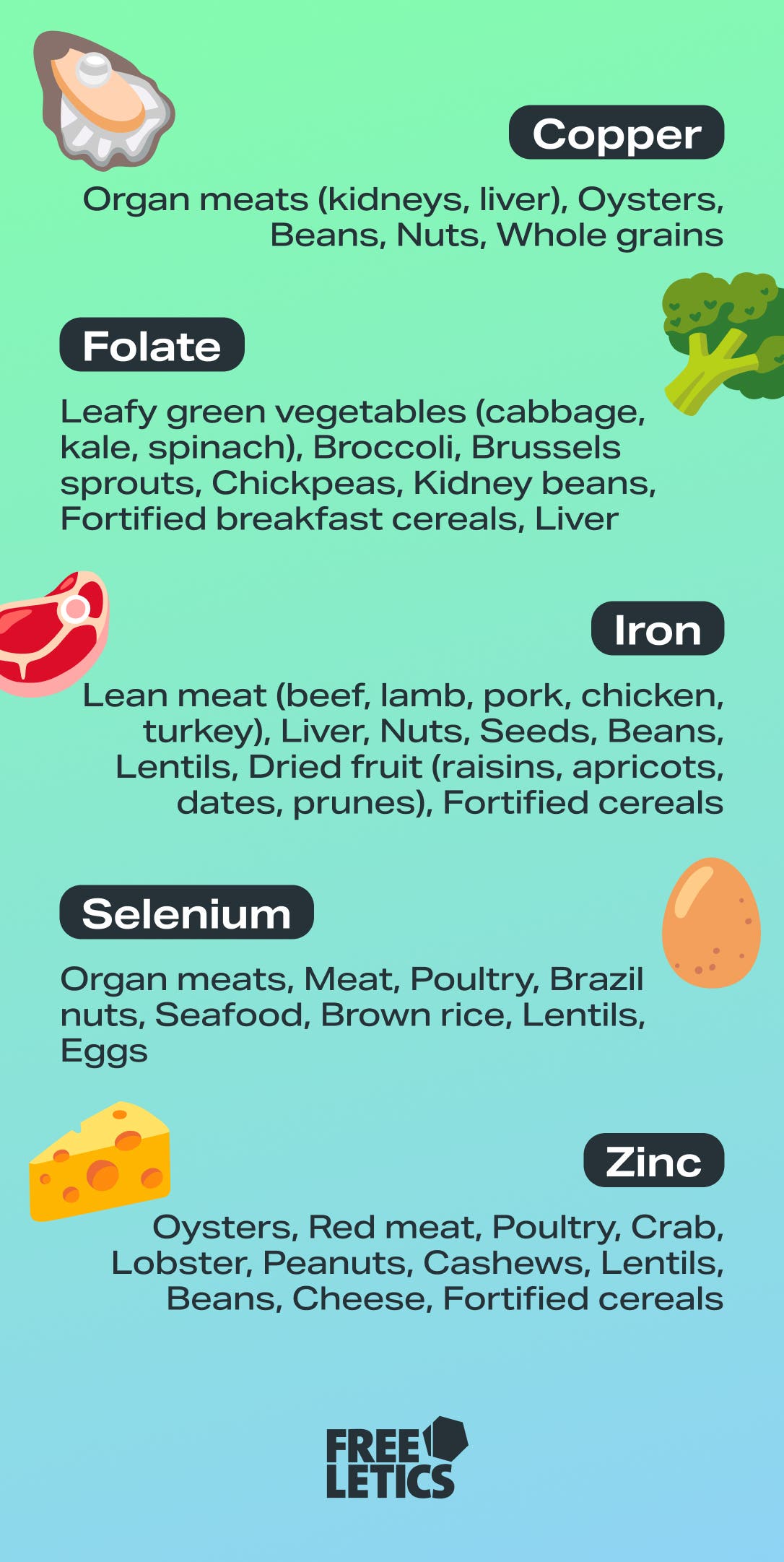What is the immune system?
The immune system is the body’s natural defense against invading pathogens, damaged cells, and even cancer. It is an incredibly complex but vital part of human existence.
The immune system is a network of organs, cells, and signaling molecules found throughout the body that work to defend it from infection.1 It includes the following:
- Organs: The primary organs of the immune system are bone marrow and thymus which are responsible for producing many of the immune cells. Other organs involved include the spleen, lymph nodes, tonsils, and mucus membranes that line organs such as the lungs and gut.
- Cells: White blood cells such as granulocytes (neutrophils, eosinophils, basophils), monocytes, and lymphocytes (T and B cells).
- Lymphatic system: a network similar to the circulatory system that carries lymph instead of blood. Lymph is responsible for carrying immune cells around the body and delivering them to where they’re needed.
When the immune system detects danger from an antigen or anything that can trigger an immune response such as a bacteria or virus, it kicks into defense mode. Various aspects of the immune system recognize the threat and launch an attack to rid it from the body.2
You can add an extra layer of armor to support the function of your immune system with your lifestyle choices. Achieving a balance between a healthy diet, physical activity, adequate sleep, and reducing your exposure to stress can help keep you strong and ready to take on flu season – even through the thick of it in winter.

How does exercise influence the immune system?
It’s true that exercise influences the health of your immune system, but you might be surprised to hear that the frequency, duration, and intensity of your workouts are also important.
Regular exercise can boost immunity and enhance your resistance to infections caused by invading pathogens.3
Moderate to vigorous exercise lasting less than 60 minutes stimulates the immune system, and each session enhances immunity. So much so that regular activity can enhance your defenses and metabolic health.4
Can too much exercise harm immunity?
Yes! Although being active is a great way to stimulate your immunity, too much can tip the balance and have the opposite effect.
For example, prolonged bouts of intense exercise can lead to immune suppression, including a reduction in circulating immune cells. These effects can last up to 24 hours after exercise, but intense training can result in even longer periods of immune dysfunction.6
Athletes who regularly exercise and do not adequately fuel themselves are at risk of a condition called Relative Energy Deficiency in Sport (RED-S). It occurs when there is a low energy availability during exercise because of an ongoing calorie deficit.
In other words, you don’t eat enough to meet the energy demands during exercise.7 In the worst cases this can cause irreparable damage and even infertility, but it also plays havoc with your immunity.8
How does nutrition affect the immune system?
In addition to exercise, nutrition is a major contributor to your immune health. Eating the proper nutrients in the correct quantities is essential for the normal functioning of all cells in the human body, including immune cells.
Deficiency in single nutrients can affect your body’s immune response to pathogens and illness. Research shows that the following nutrients are critical for optimal immunity:


5 ways to strengthen your immune system
Here are some of the things you can do to help boost your immune system:
- Stay hydrated: Don’t underestimate the powers of H2O. Water plays a key role in your immune system functioning at its best. Water is a major constituent of lymph, the liquid your immune cells travel around the body in, as well as eliminating waste.
Most people should aim for 8 glasses of water per day but this can depend on your activity level. - Eat a balanced diet: Nutrition is a pivotal factor in keeping your immune system in tip-top condition. Focus on balance and incorporating lean meats and proteins, fruits, vegetables, and whole grains into your meals and snacks.
- Prioritize rest and sleep: Without adequate sleep, your body is at risk of a weakened immune system, including an increase in pro-inflammatory messages being fired around the body.9
It’s important to aim for around 8 hours of sleep each night because studies show that those who consistently get less than 7 hours of sleep per night are almost 3 times more likely to develop a cold.10 - Manage stress: Psychological stress is known to alter immune responses, so actively try to find ways to get your stress levels under control.11 Mix in stress-reducing techniques like mindfulness, meditation, and yoga into your daily routine.
- Exercise regularly: Regular physical activity is essential for a healthy immune system. Most adults should aim for at least 150 minutes of moderate exercise per week, but be careful not to exceed 60 minutes each day as this can have an adverse effect on your defenses.
Can you exercise when you’re sick?
It’s the first question most athletes ask when they feel a cold or illness creeping in – should I exercise when I’m sick?
And while we’d love to give you a definitive answer of yes or no, the answer is, it depends on the severity. For the most part, if you have a mild cold and runny nose, you’ll probably be good to train once no more symptoms have appeared.
On the other hand, illnesses that cause fevers like COVID-19 can make you feel down for the count. And these fevers are a sign that your immune system is working hard to get the infection out of your body.
Listen to your body and wait until your symptoms have completely cleared before jumping back into any exercise routine. Better yet, when in doubt, always first consult with your physician.

Let’s recap
If you want your immune system to take care of you, you’ve got to put in the work and take care of it. And it doesn’t have to be super complicated. Prioritize regular exercise – no need to overdo it, and fill your plate with a healthy, balanced diet.
These two effective habits will provide the essential nutrients your cells need to function properly and compensate for your energy expenditure, which is crucial. Get this right and you could be crushing your training all through winter with a powerful immune system.
Sources
[1] NCI Dictionary of Cancer terms (no date a) Comprehensive Cancer Information - NCI. Available here (Accessed: 25 September 2024).
[2] InformedHealth.org [Internet]. Cologne, Germany: Institute for Quality and Efficiency in Health Care (IQWiG); 2006-. In brief: How does the immune system work? [Updated 2023 Jun 6]. Available from: https://www.ncbi.nlm.nih.gov/books/NBK279364/
[3] Zheng, Q. et al. (2015) ‘Regular exercise enhances the immune response against microbial antigens through up-regulation of toll-like receptor signaling pathways’, Cellular Physiology and Biochemistry, 37(2), pp. 735–746. doi:10.1159/000430391.
[4] Nieman, D. C., & Wentz, L. M. (2019). The compelling link between physical activity and the body's defense system. Journal of sport and health science, 8(3), 201–217. https://doi.org/10.1016/j.jshs.2018.09.009
[5] Simpson, R. J., Campbell, J. P., Gleeson, M., Krüger, K., Nieman, D. C., Pyne, D. B., Turner, J. E., & Walsh, N. P. (2020). Can exercise affect immune function to increase susceptibility to infection?. Exercise immunology review, 26, 8–22.
[6] Gleeson, M. (2007) ‘Immune Function in sport and exercise’, Journal of Applied Physiology, 103(2), pp. 693–699. doi:10.1152/japplphysiol.00008.2007.
[7] Cabre, H. E., Moore, S. R., Smith-Ryan, A. E., & Hackney, A. C. (2022). Relative Energy Deficiency in Sport (RED-S): Scientific, Clinical, and Practical Implications for the Female Athlete. Deutsche Zeitschrift fur Sportmedizin, 73(7), 225–234. https://doi.org/10.5960/dzsm.2022.546
[8] Vardardottir, B., Gudmundsdottir, S. L., & Olafsdottir, A. S. (2020). Laeknabladid, 106(9), 406–413. https://doi.org/10.17992/lbl.2020.09.596
[9] Garbarino, S., Lanteri, P., Bragazzi, N. L., Magnavita, N., & Scoditti, E. (2021). Role of sleep deprivation in immune-related disease risk and outcomes. Communications biology, 4(1), 1304. https://doi.org/10.1038/s42003-021-02825-4
[10] Cohen, S., Doyle, W. J., Alper, C. M., Janicki-Deverts, D., & Turner, R. B. (2009). Sleep habits and susceptibility to the common cold. Archives of internal medicine, 169(1), 62–67. https://doi.org/10.1001/archinternmed.2008.505
[11] Morey, J. N., Boggero, I. A., Scott, A. B., & Segerstrom, S. C. (2015). Current Directions in Stress and Human Immune Function. Current opinion in psychology, 5, 13–17. https://doi.org/10.1016/j.copsyc.2015.03.007